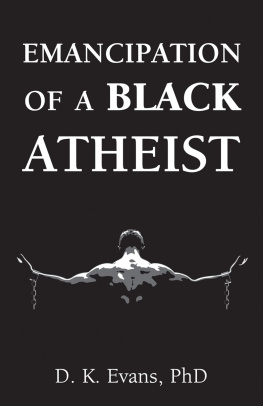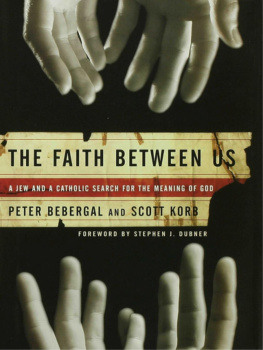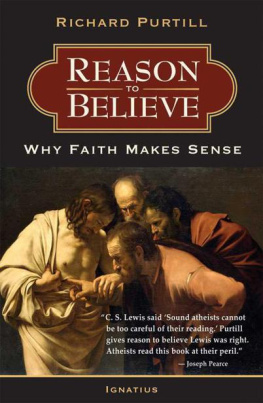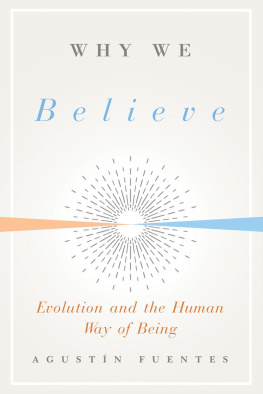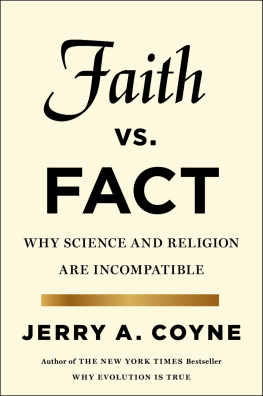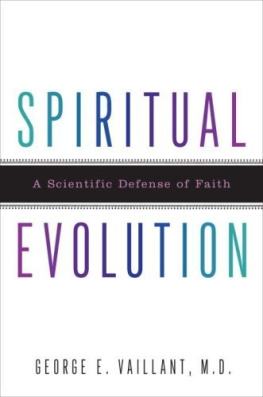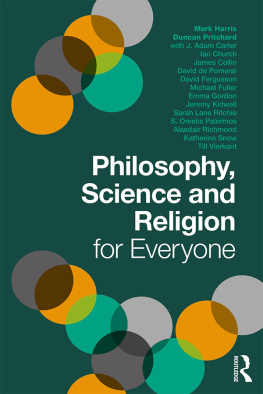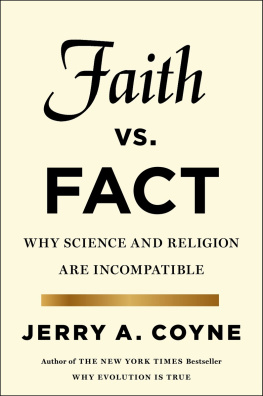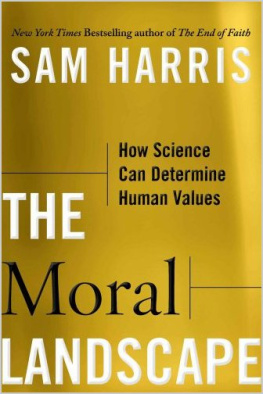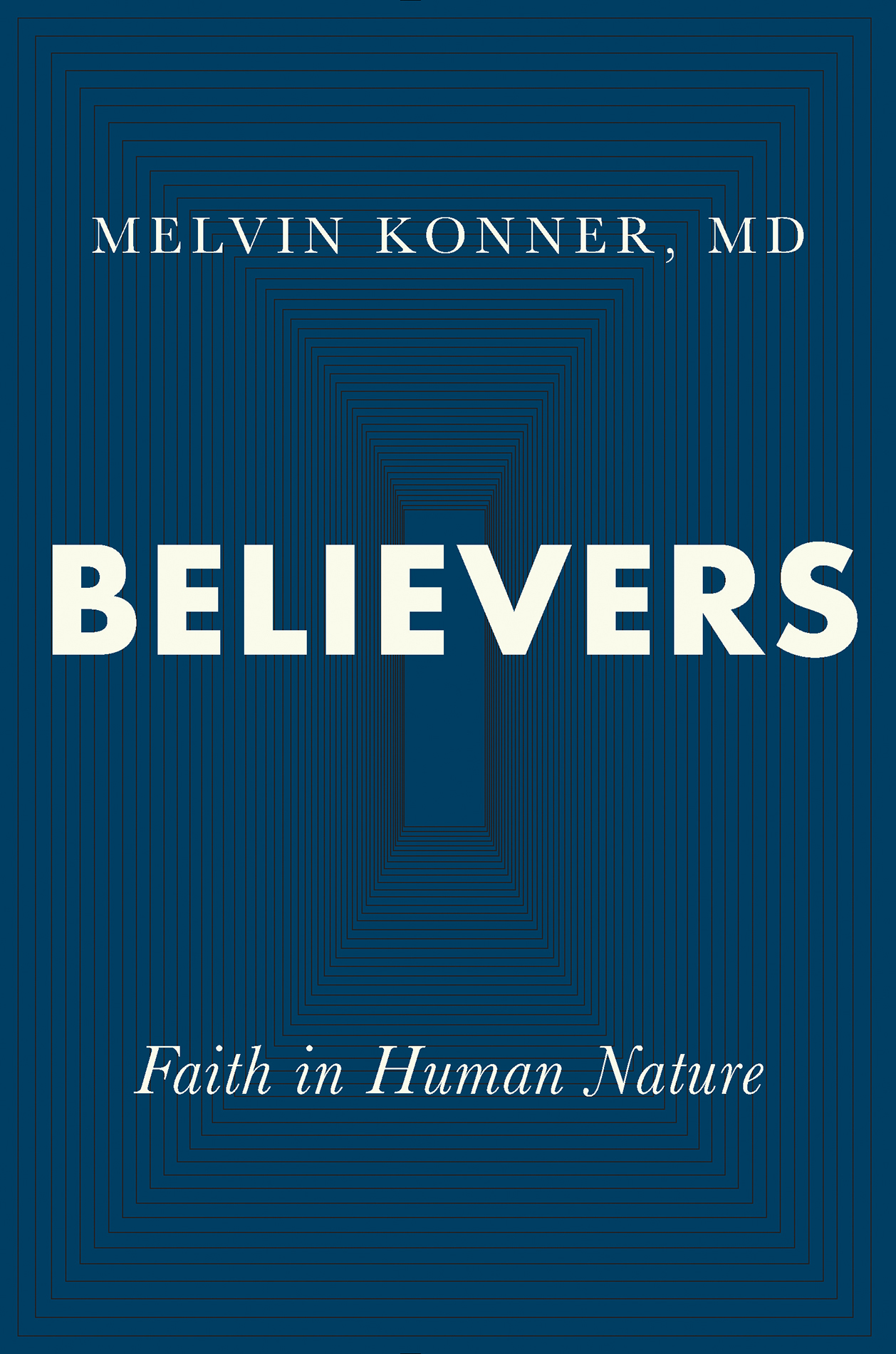Contents
Guide
Page List
ALSO BY Melvin Konner
Women after All: Sex, Evolution, and the End of Male Supremacy
The Evolution of Childhood: Relationships, Emotion, Mind
The Jewish Body: An Anatomical History of the Jewish People
Unsettled: An Anthropology of the Jews
The Tangled Wing: Biological Constraints on the Human Spirit
Medicine at the Crossroads
Childhood: A Multicultural View
Why the Reckless Survive and Other Secrets of Human Nature
The Paleolithic Prescription: A Program of Diet and Exercise and a Design for Living (coauthored with S. Boyd Eaton and Marjorie Shostak)
Becoming a Doctor: A Journey of Initiation in Medical School
Being There: Learning to Live Cross-Culturally (coedited with Sarah H. Davis)

Believers
FAITH IN HUMAN NATURE

Melvin Konner, MD
To
Rabbi Emanuel Feldman,
The Reverend Dr. James M. Gustafson,
and
Professor Ann Cale Kruger,
believers
Religious suffering is, at one and the same time, the expression of real suffering and a protest against real suffering. Religion is the sigh of the oppressed creature, the heart of a heartless world, and the soul of soulless conditions. It is the opium of the people. The abolition of religion as the illusory happiness of the people is the demand for their real happiness. To call on them to give up their illusions about their condition is to call on them to give up a condition that requires illusions. The criticism of religion is, therefore, in embryo, the criticism of that vale of tears of which religion is the halo.
Karl Marx, introduction to A Contribution to the Critique of Hegels Philosophy of Right, 1844
I had no intention to write atheistically. But I own that I cannot see, as plainly as others do, & as I shd wish to do, evidence of design & beneficence on all sides of us. There seems to me too much misery in the world... On the other hand I cannot anyhow be contented to view this wonderful universe & especially the nature of man, & to conclude that everything is the result of brute force. I am inclined to look at everything as resulting from designed laws, with the details, whether good or bad, left to the working out of what we may call chance. Not that this notion at all satisfies me. I feel most deeply that the whole subject is too profound for the human intellect. A dog might as well speculate on the mind of Newton. Let each man hope & believe what he can.
Charles Darwin, letter to Rev. Asa Gray, May 22, 1860
The human religious impulse does seem very difficult to wipe out, which causes me a certain amount of grief. Clearly religion has extreme tenacity.
Richard Dawkins, BBC Two Horizon program, April 17, 2005
Contents
T ragedies dominate the news, often man-made, enough to fill our lives if we look. But for most people, tragedy finds them. Even in the developed world, tragedy seems to visit more now than it once did. And often, the men who bring it home to us say they are motivated by faith.
Some use faith as an excuse, but for now lets take them at their word: faith is one of their motives. In Africa, Muslims and Christians build rogue armies that murder and rape on a large scale; in the Middle East, fanatical Jews desecrate Muslims graves and burn down homes with families inside; in the United States, violent Christians murder doctors who perform abortions; in Burma, Buddhists brutalize Muslims; in India, Hindus torment Muslims; and in many countries, Muslims murder unbelievers in Gods name.
But most unbelievers believe; they share the same God with their attackers. They must die not only because they are, say, Christians or Muslims but because they cross themselves with a different number of fingers or keep the feast of a different ancient imam. Theologians may say all of humankind is one, but extremists split hairs and murder infidels, thinking they are doing right. They pray for wider war between faithsas soon as enough deluded moderates see the light.
None of this is new. In fact, killing in the name of faith is less common today, when you consider human numbers. For much of our past, it was the rule, not the exception. It is how major religions became majora long clash of civilizations, war after war between armies moved by the conviction that their beliefs were solely true. But of all the different kinds of mutually exclusive belief, only one can be trueat most. Most people of faith accept the fact that billions dont share their most important commitments. Each of the largest religions is a fraction of humanity. Most adapt.
Too bad, you wont find salvation in Christ.
Sorry, you wont be reborn as a higher being or escape the cycle of rebirth.
Pity you wont be absolved of your sins before you die and are punished forever.
You wont get credit for following Gods 613 commandments.
Youll never know the precious sound of one hand clapping.
I can help you get the truth, and it will save you; if you dont get it, too bad for you.
Not,
If you dont, Ill kill you.
This letting people be is not just part of civilization; its the heart of it: freedom of thought includes freedom of faith, an ability to practice ones observances, or nonea cosmopolitan acceptance. As an adjective, cosmopolitan means open to those who are different; as a noun, a citizen of the world. Cosmopolitan civilizationhumanitys greatest inventionis higher because it is wider. Clash of civilizations is an oxymoron. What we face is a clash between civilization and something else. Something that hates and fears civilization. Something that we can be confidentfor the first time in historywill lose its futile battle against the future, against our vast humane majority.
But most of that majority are people of faithpeople whose faith leads them to build, not destroy; help, not hurt; thank, not rage. People who are uncertain about the future, but whose faith helps them to go forward: to raise their children; to come to each others aid; to wake up every morning and embrace, or at least face, a new day. Yet people with no religious faith are growing in numbers, and thats fine. In northern Europe, conventional religion is now a minority culture, although spirituality is not. Russia and China, whose generations of Communism repressed religious adherence, still have religion, although conventional believers are probably a minority. Even the US, long the most religious advanced country, is starting to catch up to Europe.
The rise of the Nonesthose who check none of the above when asked about religionis the strongest trend in American religious life. A generation ago, millions of dropouts from conventional faith ended up in spanking-new evangelical megachurches; todays dropouts end up in sports arenas and coffee shops, gyms and health food stores, clubs and psychologists offices, surfing the waves or the internet, religion the last thing on their minds. Spiritual? Many say there is more out there than material reality. But keep the beliefs and practices of prior generations? No thanks.


